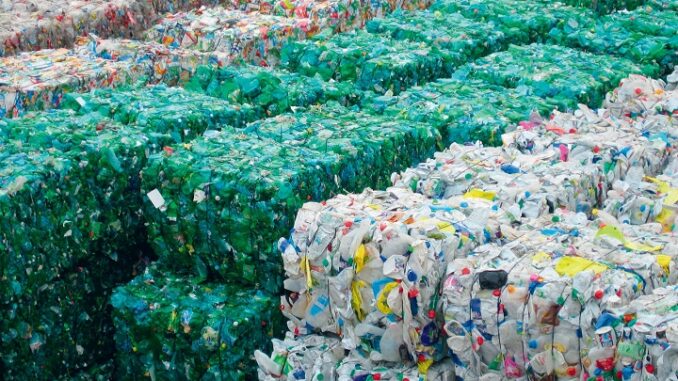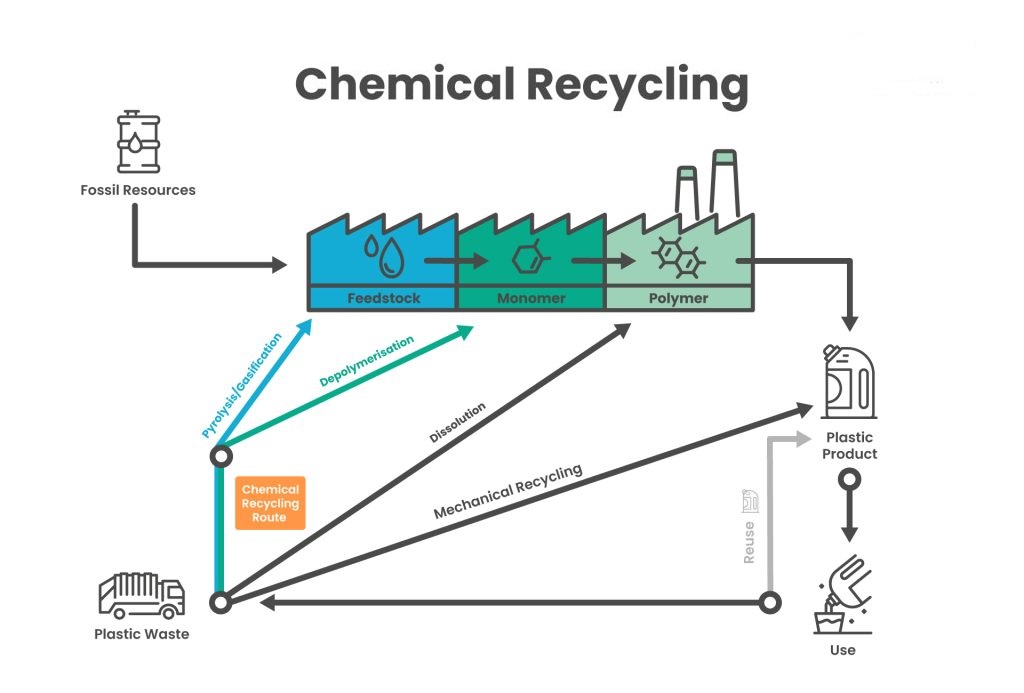
Chinese study sees huge potential of chemical recycling in dealing with plastic pollution
A recent report has stressed the huge potential of chemical recycling in dealing with plastic pollution, saying the output from the oil-producing recycling approach may potentially equal to two times of that from China’s largest oil production base by 2035.
Complied by the Chinese Academy of Macroeconomic Research, the report was unveiled as the world celebrated the 55th Earth Day.
Chemical recycling is one of the two major ways to recycle waste plastic in the world. It splits polymer chains and supplies products such as crude oil. The other way is mechanical recycling, which mechanically crushes waste plastic to make new plastic products.
Based on practices at home and abroad, mechanical recycling is a good way to recycle engineering plastics, plastic bottles and rigid plastic packages, said Zhang Deyuan, a researcher with the academy.
It, however, is not economically and technologically viable for the recycling of flexible plastic packages and plastic films, which cover about 46 percent of China’s production of plastic product, he continued, adding currently incineration and landfill are the normal approaches used to dispose of such plastic wastes.
Quoting statistics from the Plastic Recycling Association, an affiliate with China National Resources Recycling Association, a media release from the academy said about 62 million metric tons of waste plastic was generated across the country in 2023, and about 19 million tons of them were recycled.
It said this places China at an internationally leading level in waste plastic recycling.
“However, like other countries and regions, China also faces the development bottleneck in further increasing the rate. There is an urgent need to tap chemical recycling to make more waste plastic recycled,” it stated.
The amount of waste plastic incinerated or landfilled in China was estimated to be about 43 million metric tons in 2023, the academy said.
It said that China is expected to produce 155 million tons of plastic product by 2035. If chemical recycling is applied in the country at a large scale, the country will be able to see remarkable drops in plastic waste and the emissions of carbon dioxide, and significant increase in oil production.
By that time, if 30 percent of the country’s plastic waste is chemically recycled, the country will manage to annually reduce plastic waste by almost 36 million tons, it noted.
Compared with incineration, it can reduce carbon dioxide emissions by 22.3 million tons and also save 108 million tons of oil. “This is roughly equivalent to building two Daqing Oilfields,” it said.
From 2003 to 2023, annual oil and gas production of Daqing Oilfield, China’s largest onshore oilfield, has stood above the 40-million-tonne mark.

Source: China Daily, Apr 22, 2024. https://www.chinadaily.com.cn/a/202404/22/WS662612eea31082fc043c347d.html